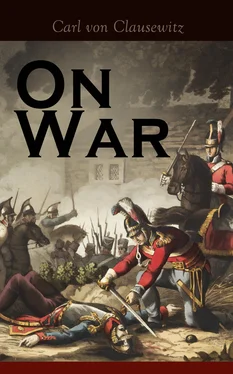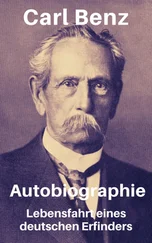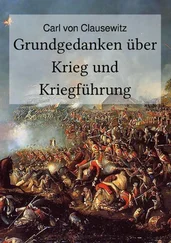But to treat upon Strategy according to these elements would be the most unfortunate idea that could be conceived, for these elements are generally manifold, and intimately connected with each other in every single operation of War. We should lose ourselves in the most soulless analysis, and as if in a horrid dream, we should be for ever trying in vain to build up an arch to connect this base of abstractions with facts belonging to the real world. Heaven preserve every theorist from such an undertaking! We shall keep to the world of things in their totality, and not pursue our analysis further than is necessary from time to time to give distinctness to the idea which we wish to impart, and which has come to us, not by a speculative investigation, but through the impression made by the realities of War in their entirety.
CHAPTER III.
Moral Forces
Table of Contents
We must return again to this subject, which is touched upon in the third chapter of the second book, because the moral forces are amongst the most important subjects in War. They form the spirit which permeates the whole being of War. These forces fasten themselves soonest and with the greatest affinity on to the Will which puts in motion and guides the whole mass of powers, uniting with it as it were in one stream, because this is a moral force itself. Unfortunately they will escape from all book-analysis, for they will neither be brought into numbers nor into classes, and require to be both seen and felt.
The spirit and other moral qualities which animate an Army, a General, or Governments, public opinion in provinces in which a War is raging, the moral effect of a victory or of a defeat, are things which in themselves vary very much in their nature, and which also, according as they stand with regard to our object and our relations, may have an influence in different ways.
Although little or nothing can be said about these things in books, still they belong to the theory of the Art of War, as much as everything else which constitutes War. For I must here once more repeat that it is a miserable philosophy if, according to the old plan, we establish rules and principles wholly regardless of all moral forces, and then, as soon as these forces make their appearance, we begin to count exceptions which we thereby establish as it were theoretically, that is, make into rules; or if we resort to an appeal to genius, which is above all rules, thus giving out by implication, not only that rules were only made for fools, but also that they themselves are no better than folly.
Even if the theory of the Art of War does no more in reality than recall these things to remembrance, showing the necessity of allowing to the moral forces their full value, and of always taking them into consideration, by so doing it extends its borders over the region of immaterial forces, and by establishing that point of view, condemns beforehand every one who would endeavour to justify himself before its judgment seat by the mere physical relations of forces.
Further out of regard to all other so-called rules, theory cannot banish the moral forces beyond its frontier, because the effects of the physical forces and the moral are completely fused, and are not to be decomposed like a metal alloy by a chemical process. In every rule relating to the physical forces, theory must present to the mind at the same time the share which the moral powers will have in it, if it would not be led to categorical propositions, at one time too timid and contracted, at another too dogmatical and wide. Even the most matter-of-fact theories have, without knowing it, strayed over into this moral kingdom; for, as an example, the effects of a victory cannot in any way be explained without taking into consideration the moral impressions. And therefore the most of the subjects which we shall go through in this book are composed half of physical, half of moral causes and effects, and we might say the physical are almost no more than the wooden handle, whilst the moral are the noble metal, the real bright-polished weapon.
The value of the moral powers, and their frequently incredible influence, are best exemplified by history, and this is the most generous and the purest nourishment which the mind of the General can extract from it.—At the same time it is to be observed, that it is less demonstrations, critical examinations, and learned treatises, than sentiments, general impressions, and single flashing sparks of truth, which yield the seeds of knowledge that are to fertilise the mind.
We might go through the most important moral phenomena in War, and with all the care of a diligent professor try what we could impart about each, either good or bad. But as in such a method one slides too much into the commonplace and trite, whilst real mind quickly makes its escape in analysis, the end is that one gets imperceptibly to the relation of things which everybody knows. We prefer, therefore, to remain here more than usually incomplete and rhapsodical, content to have drawn attention to the importance of the subject in a general way, and to have pointed out the spirit in which the views given in this book have been conceived.
CHAPTER IV.
The Chief Moral Powers
Table of Contents
These are The Talents of the Commander; The Military Virtue of the Army; Its National feeling . Which of these is the most important no one can tell in a general way, for it is very difficult to say anything in general of their strength, and still more difficult to compare the strength of one with that of another. The best plan is not to undervalue any of them, a fault which human judgment is prone to, sometimes on one side, sometimes on another, in its whimsical oscillations. It is better to satisfy ourselves of the undeniable efficacy of these three things by sufficient evidence from history.
It is true, however, that in modern times the Armies of European states have arrived very much at a par as regards discipline and fitness for service, and that the conduct of War has—as philosophers would say—naturally developed itself, thereby become a method, common as it were to all Armies, so that even from Commanders there is nothing further to be expected in the way of application of special means of Art, in the limited sense (such as Frederick the Second’s oblique order). Hence it cannot be denied that, as matters now stand, greater scope is afforded for the influence of National spirit and habituation of an army to War. A long peace may again alter all this. 16
The national spirit of an Army (enthusiasm, fanatical zeal, faith, opinion) displays itself most in mountain warfare, where every one down to the common soldier is left to himself. On this account, a mountainous country is the best campaigning ground for popular levies.
Expertness of an Army through training, and that well-tempered courage which holds the ranks together as if they had been cast in a mould, show their superiority in an open country.
The talent of a General has most room to display itself in a closely intersected, undulating country. In mountains he has too little command over the separate parts, and the direction of all is beyond his powers; in open plains it is simple and does not exceed those powers.
According to these undeniable elective affinities, plans should be regulated.
16.Written shortly after the Great Napoleonic campaigns.
CHAPTER V.
Military Virtue of an Army
Table of Contents
This is distinguished from mere bravery, and still more from enthusiasm for the business of War. The first is certainly a necessary constituent part of it, but in the same way as bravery, which is a natural gift in some men, may arise in a soldier as a part of an Army from habit and custom, so with him it must also have a different direction from that which it has with others. It must lose that impulse to unbridled activity and exercise of force which is its characteristic in the individual, and submit itself to demands of a higher kind, to obedience, order, rule, and method. Enthusiasm for the profession gives life and greater fire to the military virtue of an Army, but does not necessarily constitute a part of it.
Читать дальше












